Search
Remove Ads
Advertisement
Summary 
Loading AI-generated summary based on World History Encyclopedia articles ...
Search Results
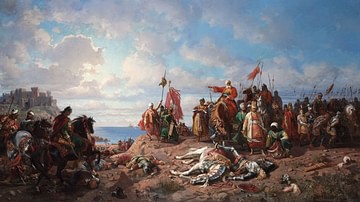
Article
Battles & Conquests Of The Ottoman Empire (1299-1683)
Spanning across three continents and holding dominance over the Black and Mediterranean Seas, the Ottoman Sultanate (1299-1922) was a global military superpower between the 15th and 17th centuries. From the point of its inception in 1299...
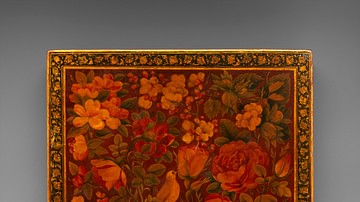
Definition
Persian Rose-and-Nightingale Paintings
Rose-and-nightingale paintings and patterns (gul-u-bulbul) are a subtheme of the bird-flower (gul-u-morḡ) genre in Persian art. Bird-and-flower paintings are of Chinese origin and include pictorial elements such as flowers and plants, birds...

Definition
Ottoman Empire
The Ottoman Sultanate (1299-1922 as an empire; 1922-1924 as caliphate only), also referred to as the Ottoman Empire, written in Turkish as Osmanlı Devleti, was a Turkic imperial state that was conceived by and named after Osman (l. 1258-1326...

Image
Suleiman the Magnificent and the Ottoman Empire, c. 1566
Suleiman the Magnificent (also known as Süleyman, Suleyman I, or Suleiman the Lawgiver) was the tenth and longest-reigning sultan of the Ottoman Empire, ruling from 1520 to 1566. Over his 45-year reign, he governed a vast, diverse empire...
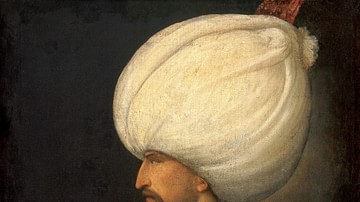
Definition
Suleiman the Magnificent
Suleiman the Magnificent (aka Süleyman I or Suleiman I, r. 1520-1566) was the tenth and longest-reigning sultan of the Ottoman Empire. Hailed as a skilled military commander, a just ruler, and a divinely anointed monarch during his lifetime...
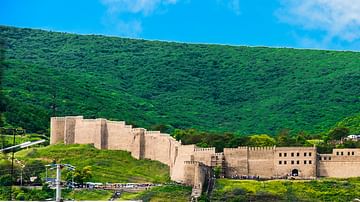
Definition
Derbent
Derbent (sometimes "Derbend" or "Darbend") is an ancient city located along the Caspian Sea in what is present-day Russia. Although the area in and around Derbent has been continuously inhabited since at least the 8th century BCE, Shah Yazdegerd...
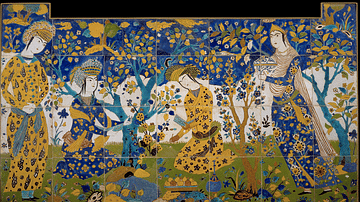
Definition
Persian Seven-Colored Tiles
Persian Haft Rang tiles, also known as seven-colored tiles, are highly decorative glazed tiles used to adorn the exteriors and interiors of both secular and religious buildings. The tiles first came to prominence from the 15th century and...

Definition
Nasta 'liq
Nasta 'liq is one of the styles of Islamic calligraphy that was developed on Persian grounds by Persian calligraphers. The art of calligraphy has always held a prominent position in Persia, and its usage extends beyond the limits of the pages...

Image
Ancient Smbataberd Fortress
The ancient Smbataberd Fortress (or "castle") dates from the 5th century CE and lies in the Vayots Dzor Province of Armenia. Well preserved, the ruins of citadels, barracks, water pools, and former dwellings for soldiers remain at Smbataberd...

Image
Shah Ismail I
Shah Ismail I (r. 1501-1524), founder of the Safavid Dynasty of Iran, portrait by Cristofano dell'Altissimo.
Uffizi Gallery, Florence.